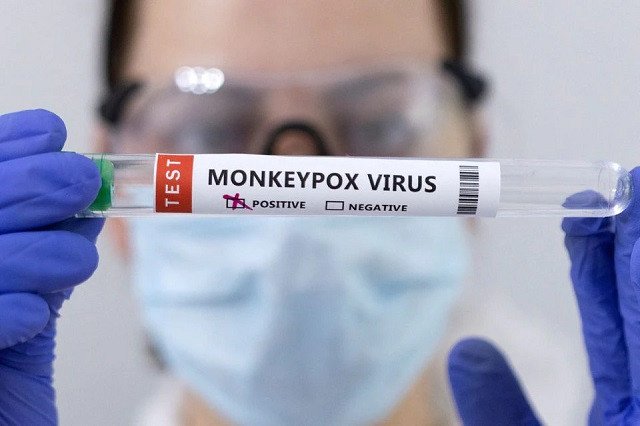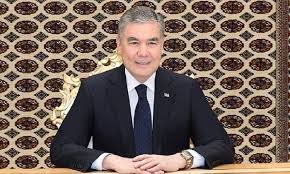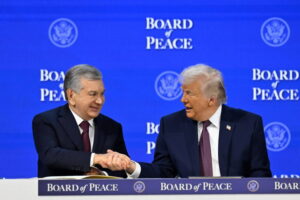US Declares Monkeypox Outbreak a Public Health Emergency

Washington, The Gulf Observer: Amid criticism he has been slow to adequately respond to the fast-spreading outbreak of the monkeypox virus, a top U.S. health official Thursday declared an emergency response.
“I want to make an announcement today that I will be declaring a public health emergency on monkeypox,” said Xavier Becerra, secretary of health and human services, told reporters on a conference call. “We’re prepared to take our response to the next level in addressing this virus, and we urge every American to take monkeypox seriously.”
The emergency declaration came after a similar announcement was made nearly two weeks ago by the World Health Organization. The U.S. states of California, Illinois and New York had also declared public health emergencies because of the spread of the virus, which causes a painful but rarely fatal disease.
“This public health emergency will allow us to explore additional strategies to get vaccines and treatments more quickly out to the impacted communities. And it will allow us to get more data from jurisdictions so we can effectively track and attack this outbreak,” said Robert Fenton of the Federal Emergency Management Agency, who was recently named by President Joe Biden as the White House national monkeypox response coordinator.
Monkeypox is a DNA virus and not prone to mutate as do RNA viruses, such as the coronavirus that causes COVID-19, meaning it is much more likely to be stable, with the likelihood of fewer variants. Monkeypox is spread through physical contact, not through the air.
Symptoms can last weeks
Monkeypox, first identified in monkeys in 1958, however, is in the same family of viruses as the often-deadly smallpox. Monkeypox symptoms, including fever and swollen lymph nodes, can last for weeks, causing often painful lesions and rashes.
“This particular clade of the monkeypox virus seems to be, for reasons that we don’t understand, primarily associated with lesions around the genital and anal areas and in the mouth, and right now still an overwhelming percent of cases are among men who have sex with men,” Dr. Jeffrey Singer, a Cato Institute senior fellow and general surgeon in Arizona, told VOA.
Since mid-May, more than 6,600 cases of monkeypox have been confirmed in the United States, although health officials believe the number is significantly under-reported. There have been a small number of recent cases, as well, attributed to community spread.
“The public health emergency is going to mobilize additional boots on the ground to help educate people about actions they can take to limit their exposure as vaccines become more widely available,” said Rochelle Walensky, director of the federal Centers for Disease Control and Prevention.
Only one vaccine for monkeypox, known by its trade name Jynneos, is approved for use in the United States and it is in limited supply. Only enough doses have been received to fully cover about 600,000 people, while federal officials say about 1.6 million to 1.7 million Americans are at a high risk of contracting the disease.
The Biden administration is being criticized as acting too slowly to secure the vaccine doses. Similar complaints were aired about the early response to the coronavirus pandemic.
Biden, on the campaign trail in 2020 to defeat Donald Trump in the presidential election, repeatedly pilloried the Republican incumbent for a delayed and bungled reaction to the spread of COVID-19.
Vaccine deployment
White House press secretary Karine Jean-Pierre on Thursday told reporters that the Biden administration, within two days of the first confirmed case of monkeypox in the country, “began deploying vaccine to states and jurisdictions and pre-positioning tens of thousands of additional doses in the Strategic National Stockpile.”
Based on monkeypox outbreaks in the recent past, officials believed those doses would be sufficient to meet the needs of the country, Jean-Pierre added, acknowledging that the administration may have been caught off guard by what she termed “a dynamic and rapidly changing virus.”
The U.S. government owned a huge stockpile of monkeypox vaccine equivalent to 16.5 million doses produced and stored by Bavarian Nordic in Denmark. But by the time HHS requested on June 10 that a half million doses be put into vials, other countries had submitted their orders, sending the United States to the bottom of the waiting list. There were two additional requests from Washington in July, totaling 5 million doses, but HHS was told that volume could not be delivered until early next year.
Jynneos, which the United States spent more than $1 billion to develop and store, can also be used to inoculate people against smallpox. A factory in the state of Michigan that also helped produce COVID-19 vaccines is expected to be used to bottle 2.5 million doses of Jynneos now on order.
Others were ‘anticipating better’
“I do think they dropped the ball. The other countries beat America to getting the vaccine that America kind of paid for in advance because they were anticipating better than we were,” Singer told reporters.
Biden is upset by the vaccine shortage, according to The New York Times, citing two senior federal officials. The newspaper’s report said critics are also blaming Becerra for a hands-off approach as monkeypox emerged as a public health threat.
The president has full confidence in HHS, the White House press secretary said on Thursday.
Whether it is the president or his top health officials facing criticism, “they’re working with these rusty, sclerotic, bureaucratic agencies that are there through many administrations. So that’s why we need to take a look at the whole FDA regulatory system,” Singer said.
The president “is constantly asking what are we doing,” Jean-Pierre replied when asked about Biden’s involvement in the response to the disease. “We’re taking this very seriously.”


